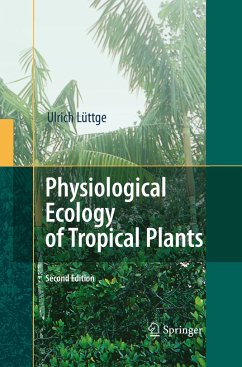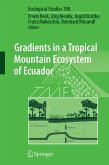In spite of international agreements at the political level not much has changed since the late 1980s in terms of reducing the speed of destruction of original tropical environments.
However, since the publication of the first edition ten years ago, international research efforts in physiological ecology of plants in the tropics has increased enormously in quantity and quality. In some fields advances were more substantial than in others. New approaches came up in remote sensing and at the other end of the scope in some areas molecular biology was particularly developed regarding ecological performance of tropical plants, e.g. in understanding the adaptation of resurrection plants to the extreme habitat of inselbergs.
The wealth of new information made it necessary to break large chapters down into smaller ones. Tropical forests which occupy about half of the entire volume of the book were now arranged in 5 chapters covering structure and function under the influence of environmental cues and including epiphytes and mangroves as part of the tropical forest complex. Savannas were now treated in two chapters. Coastal salinas have been combined with a new section on the Brazilian restingas in a chapter on coastal sand plains.
However, since the publication of the first edition ten years ago, international research efforts in physiological ecology of plants in the tropics has increased enormously in quantity and quality. In some fields advances were more substantial than in others. New approaches came up in remote sensing and at the other end of the scope in some areas molecular biology was particularly developed regarding ecological performance of tropical plants, e.g. in understanding the adaptation of resurrection plants to the extreme habitat of inselbergs.
The wealth of new information made it necessary to break large chapters down into smaller ones. Tropical forests which occupy about half of the entire volume of the book were now arranged in 5 chapters covering structure and function under the influence of environmental cues and including epiphytes and mangroves as part of the tropical forest complex. Savannas were now treated in two chapters. Coastal salinas have been combined with a new section on the Brazilian restingas in a chapter on coastal sand plains.








